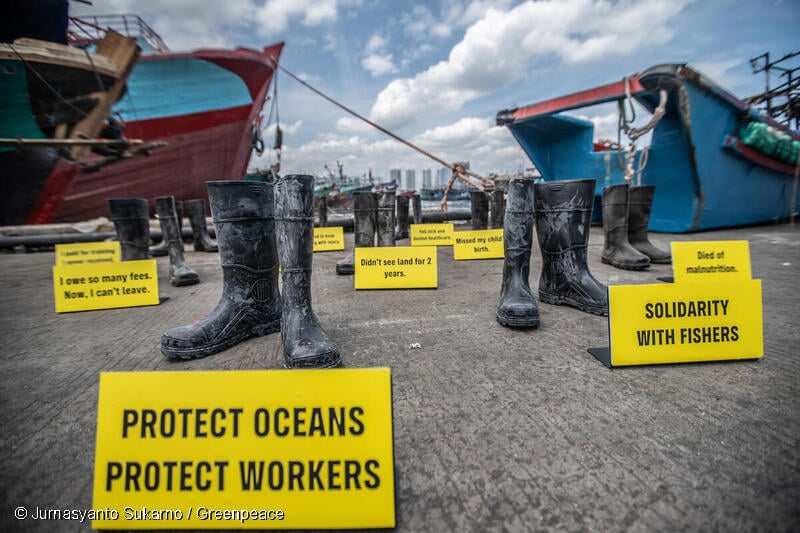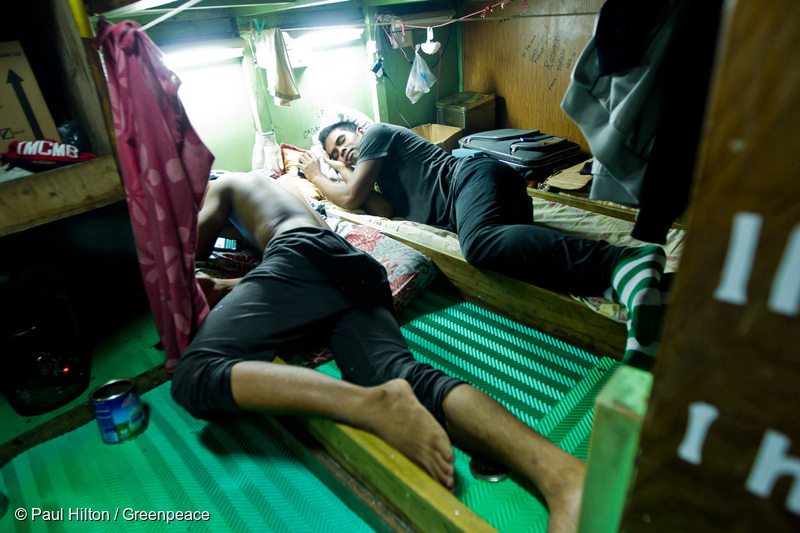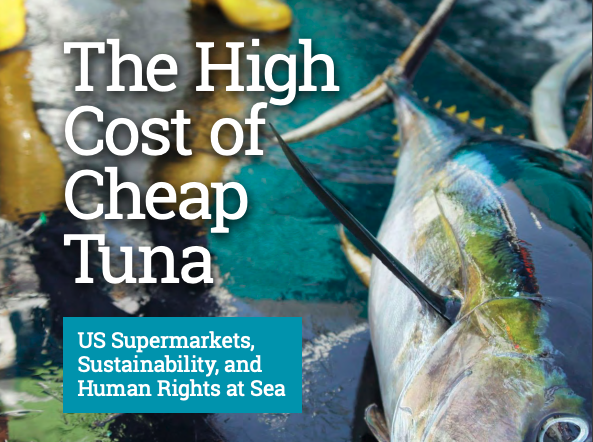A group of prominent US businesses, including Walmart, submitted a proposal to the US Government that would hide trade data used to trace labor abuses through the seafood supply chain. The Commercial Customs Operations Advisory Committee, authorized by the U.S. Customs and Border Protection (CPB) to advise on ways to streamline trade regulations, quietly submitted the proposal under the guise of modernizing import and export rules ahead of closed-door meetings with senior officials from CBP and other federal agencies that started on Monday, October 17 in Washington D.C. This dangerous proposal would make it even harder to uncover and eliminate forced labor and other forms of modern slavery from supply chains.

A group of prominent US businesses, including Walmart, submitted a proposal to the US Government that would hide trade data used to trace labor abuses through the seafood supply chain. The Commercial Customs Operations Advisory Committee, authorized by the U.S. Customs and Border Protection (CPB) to advise on ways to streamline trade regulations, quietly submitted the proposal under the guise of modernizing import and export rules ahead of closed-door meetings with senior officials from CBP and other federal agencies that started on Monday, October 17 in Washington D.C. This dangerous proposal would make it even harder to uncover and eliminate forced labor and other forms of modern slavery from supply chains.

Washington DC (October 19, 2022) – A group of prominent US businesses, including Walmart, submitted a proposal to the US Government that would hide trade data used to trace labor abuses through the seafood supply chain. The Commercial Customs Operations Advisory Committee, authorized by the U.S. Customs and Border Protection (CPB) to advise on ways to streamline trade regulations, quietly submitted the proposal under the guise of modernizing import and export rules ahead of closed-door meetings with senior officials from CBP and other federal agencies that started on Monday, October 17 in Washington D.C.
In response to the proposal, Mallika Talwar, Greenpeace USA Senior Oceans Campaigner, said: “This is a dangerous proposal that would place not only the lives of vulnerable fishers in the seafood industry at even more risk but also millions of workers around the world working in a variety of high-risk supply chains. For years, the Greenpeace network has exposed the widespread human rights abuses in seafood supply chains. This work has brought to light how American companies such as Bumble Bee have been sourcing tuna from these tainted supply chains. Just this year, the Taiwanese-owned and operated vessel, the Da Wang, which previously supplied Bumble Bee’s parent company, was confirmed by the U.S. Customs and Border Protection as using forced labor. These abuses have been protected and enabled by the notorious lack of transparency and traceability in seafood supply chains.”
Greenpeace East Asia’s latest investigative report – “Fake My Catch – the unreliable traceability in our tuna cans” released in September, used publicly available information to expose suspected illegal, unreported, and unregulated (IUU) fishing and indicators of forced labor in the Bumble Bee supply chain. This dangerous proposal would make it even harder to uncover and eliminate forced labor and other forms of modern slavery from supply chains.
Talwar continued: “In a time when consumers and civil society organizations are demanding that retailers and brands act ethically in their supply chains, it is shameful that American corporations are working to undermine the little progress that has been made on transparency and traceability. It is clear that corporations like Walmart and Bumble Bee are prioritizing profits over people and the planet. They must stop skirting their responsibilities in the name of profit and use their considerable power and influence to become voices for change on human rights issues.”
Greenpeace USA’s 2021 report, “The High Cost of Cheap Tuna: US Supermarkets, Sustainability, and Human Rights at Sea,” which assessed the human rights policies applied to retailers’ tuna supply chains, found that all 16 retailers surveyed, including Walmart, received failing scores.
The U.S. is the largest seafood importer in the world. Consumer demand for tuna has risen steadily while fish stocks have declined due to overfishing and ocean warming driven by climate change. As the commercial fishing frenzy escalates to meet global demand, so have reports of forced labor and human rights violations aboard fishing vessels. The weak human rights policies governing US retailers’ supply chains have left many loopholes for migrant fishers to be subjected to a wide range of exploitative labor practices, from debt bondage to physical abuse, and even allegations of suspected murder on the high seas.
###
Greenpeace USA is part of a global network of independent campaigning organizations that use peaceful protest and creative communication to expose global environmental problems and promote solutions that are essential to a green and peaceful future. Greenpeace USA is committed to transforming the country’s unjust social, environmental, and economic systems from the ground up to address the climate crisis, advance racial justice, and build an economy that puts people first. Learn more at www.greenpeace.org/usa.



